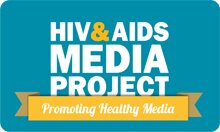Manto Tshabalala-Msimang

Sometimes referred to as “Dr No” because of her stubbornness regarding anti-retroviral treatment, former South African health minister Dr Manto Tshabalala-Msimang was notorious for her controversial views and slow action in most areas of HIV/AIDS prevention, treatment and care.
Tshabalala-Msimang was installed as health minister in former President Thabo Mbeki’s Cabinet in June 1999 and soon gained a reputation for her alternative — some would say dissident — views on HIV/AIDS. Tshabalala-Msimang has consistently supported Mbeki’s views on HIV/AIDS, including his distrust of the widely-supported anti-retroviral drug AZT in 1999 and his questioning of conventional HIV/AIDS science in 2000.
In an article by the South African Press Association (SAPA), she champions a diet of raw garlic, lemon peel, olive oil and beetroot to manage HIV and questions the use of antiretroviral treatment (ART) because of its side-effects, despite its proven efficacy.
The Treatment Action Campaign (TAC) took Tshabalala-Msimang to court in an attempt to force her to address HIV/AIDS treatment issues, including the prevention of mother-to-child transmission, public sector anti-retroviral treatment and her support of controversial vitamin proponent Matthias Rath (see treatment timeline).
A consistent criticism when she was health minister was the slow rollout of anti-retroviral treatment in South Africa, since Cabinet had approved the Operations Plan for Comprehensive Treatment and Care for HIV/AIDS in late 2003. By March 2005 about 104 600 people were being treated with ARVs in South Africa, out of the 837 000 the World Health Organisation estimated needed the treatment, according to December 2004 figures.
Tshabalala-Msimang was replaced by Barbara Hogan in 2008. In December 2009, she died of complications related to a liver transplant she had received two years prior.






